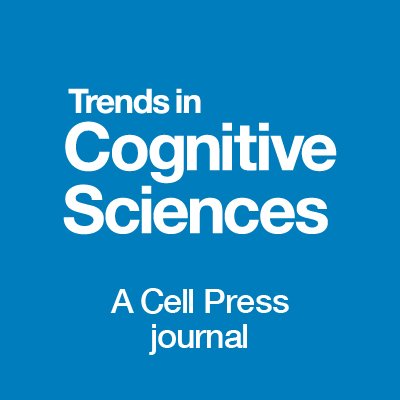
Trends in Cognitive Sciences
@TrendsCognSci
Followers
31K
Following
2K
Media
509
Statuses
3K
Trends in Cognitive Sciences - monthly review journal featuring developments across cog sci and neurosci. Posts by the editor.
Cambridge, MA
Joined February 2011
Building Momentum: What Our Record Q3 Means for Abacus Shareholders | $ABL Chairman & CEO, Jay Jackson | @SubstackInc "I'm excited to share that Abacus has just delivered our tenth consecutive quarter of strong earnings growth—a milestone that reflects not just where we are
2
2
16
Psychological drivers of gender disparities in leadership paths Review by Laura J. Kray, Sonya Mishra, Charlotte H. Townsend, & Jessica A. Kennedy https://t.co/u0e863PHv8
0
0
2
Over the coming weeks and months, look out for more articles covering a wide array of insect cognition topics, including spatial navigation, collective behavior, memory during sleep, and economic decision-making.
0
0
2
Next, Martin Giurfa (@MartinGiurfa) discusses how communication channels in social insects, once thought to produce purely innate responses, are subject to cognitive modulation.
cell.com
Social insects rely on multiple communication channels. These channels have traditionally been considered innate, eliciting stereotyped responses. However, recent research has shown that cognitive...
1
1
2
First up, Elizabeth A. Tibbetts explores how paper wasps manage social relationships. Tibbetts reveals that paper wasps use behaviors like individual face recognition, social eavesdropping, and transitive inference to navigate their social environment.
cell.com
Paper wasp societies use behaviors like individual face recognition, configural face processing, social eavesdropping, and transitive inference to manage social relationships. Despite their evoluti...
1
0
0
Despite their tiny brains, insects display a surprising range of complex behaviors, challenging our assumptions about the origins, neural basis, and universality of cognitive processes. Our November issue kicks off a Forum series on Insect Cognition https://t.co/ROmqn4Hzv8
1
6
16
We’re excited to announce our collaboration with @basetenco Now you can run both local and cloud models in one Mirai SDK, using the same API to route each request where it runs best. Run local inference for speed and privacy, while freeing your cloud GPUs for what truly needs
0
0
13
The adaptive value of stubborn goals Review by Eleanor Holton (@EleanorHolton1), Yael Niv (@yael_niv) & Jill X. O’Reilly https://t.co/9FzQUxX7IG
0
13
66
Hierarchical interactions between sensory cortices defy predictive coding Opinion by Jacob A. Westerberg & Pieter R. Roelfsema (@Pieters_Tweet), https://t.co/zWIczvdbRu
0
28
135
Belief in karma: how beliefs about moral causality shape social behavior Review by Cindel White Free access before Dec 13: https://t.co/deCYBcQlOH
2
27
79
Representations of social experience in hippocampal circuits Review by Rachel S. Clein (@grad_rachel) & Elizabeth Gould Free access before December 11: https://t.co/K9CrDwDSb6
3
37
150
Emotion and prediction errors: which ingredients matter? Spotlight by Marius Vollberg (@mcvollberg), Yoann Stussi, Eva Pool, David Sander on a recent @NatureComms article by J. Heffner, R. Frömer (@froemero1), M. Nassar & O. FeldmanHall (@orielf) https://t.co/IezNwux733
cell.com
Does including emotions improve reinforcement-learning models? A recent EEG study by Heffner and colleagues presents separate neural signatures for reward and emotion prediction errors. This advance...
0
7
40
Predictive coding has guided neuroscience for years but it does not account for the neuronal data. We review how patterns of feedback during spatial and temporal predictions are better captured by a family of opposing theories, collectively termed BELIEF. https://t.co/QU22KK7h7y
1
21
84
As an EV charging network provider, your reputation lives and dies by reliability. Every failed charging session isn’t just a technical hiccup — it’s a frustrated driver, a potential social post, and a lost opportunity to build trust. That’s why measuring the right reliability
chargelab.co
Learn what metrics you should use to measure the reliability of your EV charging network and how to improve uptime and driver experience effectively.
1
5
16
AI Surrogates and illusions of generalizability in cognitive science Opinion by M.J. Crockett & Lisa Messeri Free access before Dec 10: https://t.co/7KY3xJMUNi
0
27
68
Reconceptualizing cognitive listening Opinion by Sven L. Mattys, Ryan M. O'Leary, Ronan A. McGarrigle (@McgarrigleRonan), & Arthur Wingfield https://t.co/svbH3a9CPh
0
6
13
The process of affect labeling Review by Ella Givon, Nachshon Meiran (@NMeiran), & Amit Goldenberg (@Amit_Goldenb) Free access before Dec 6: https://t.co/3bBTSufl02
0
13
54
The hidden costs of human cooperation Jörg Gross, Caroline Graf (@carolinegraf321), and Charlotte Rossetti (@charlotteslross) https://t.co/VKam26tmPf
0
17
59
@Joeybadass brought his Brooklyn energy to the latest episode of Chime’s Ball on A Budget. Powered by @chime
6
18
162
More than incurious: the development of deliberate ignorance Forum by Linda Kerbl, Zoe Rahwan, Ralph Hertwig, & Simon Ciranka https://t.co/v5LzIq3KOr
0
3
14
Rapid decay of perceptual memory in dyslexia Opinion by Ayelet Gertsovski & Merav Ahissar (@MeravAhissar) https://t.co/ffRHzH2qqz
0
1
10
Great piece on why AI won't solve the loneliness epidemic: “presenting AI as a scalable solution to the loneliness epidemic risks overlooking the structural and societal roots of the problem and may allow us to abdicate our responsibility as a society.”
Can AI really help solve the loneliness epidemic? Science & Society by Christian Montag (@ChrisMontag77), Michiel Spapé, & Benjamin Becker (@bn_becker) Free access before Nov 5: https://t.co/acELSEDRud
0
2
11
Check out this new review w/ John Serences We consider how and why visual cortical working memory codes can transform away from the sensory-evoked code Free before Nov. 27: https://t.co/aagwSNTTzt
0
8
30
The IRS’s appeal in AbbVie threatens to undermine the Trump administration’s pro-growth agenda by paving the way for higher corporate tax burdens.
0
0
2












